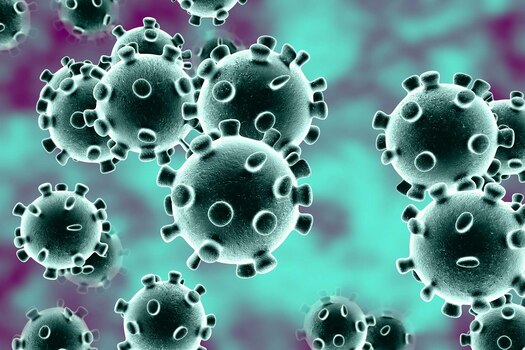Corona Virus: Should CHS Be Concerned?
February 7, 2020
It can be heard in the classrooms and halls at Chester High School: “I think I have Corona!” “Corona Virus!” The whole world is currently wondering about the Coronavirus: what is it, what caused it, and what will happen because of it?
The Wuhan Coronavirus, also known as the 2019 Novel Corona Virus, was discovered on December 30th, 2019. It earned the name Corona due to it belonging in a family of viruses classified as Coronaviruses. These can include Bronchitis, Severe Acute Respiratory Syndrome (SARS), and even the common cold. Those who have taken biology courses may know of DNA strands and RNA strands, and this virus is an RNA strand disease, meaning it is made of RNA strand material.
What are the symptoms and how does it spread?
Symptoms of the 2019 Novel Coronavirus include coughing, fever, and other flu-like symptoms. In severe cases, it can lead to inflammation in the lungs, kidney failure and, in some cases, death. Many measures in areas such as China have been in place to prevent the spread of the disease, such as having citizens wearing masks and, in some places, the total lockdown of cities. The virus is mostly spread via respiratory droplets in saliva from sneezing, coughing, and even just breathing. However, a more worrisome part of the 2019 Novel Coronavirus, is its incubation period.
An incubation period of a disease is defined as “The time from the moment of exposure to an infectious agent until symptoms of a disease may appear.” In more simple terms, the incubation period is whenever a disease has infected a person, but the person does not show any symptoms of the illness yet. For the 2019 Novel Coronavirus, it is contagious during its incubation period, which lasts anywhere from one day to 14 days. This can make people unknowingly spread the illness before they even think they have the disease. Obviously, this can make this disease very contagious, especially in highly-populated areas like China.
How did this all begin?
This can be a tough question, because there may be no exact reason. However, there is one theory that is most likely to be true. It is believed that a crossover event occurred in a live food market from animals to humans. The city where the outbreak was first recorded, Wuhan, was a large bustling city with many fresh food markets, which makes this theory seem believable due to the number of people and live animals in and around the city.
Where is the disease at now?
As of February 7th, 2020, at 9:19 a.m., there are 31,535 cases worldwide of the 2019 Novel Coronavirus, and 638 deaths due to the illness. In the United States, there are 12 confirmed cases, with no deaths, but there are still other cases outside of China. Meanwhile, on January 30th, 2020, the disease was declared a Global Health Emergency by the World Health Organization.
While this disease seems very frightening, a total of 1,778 people worldwide have recovered from the virus, one being in the United States. As stated previously, measures are being taken to help prevent the disease, such as instituting lockdowns, wearing masks to prevent transmission, and even just alerting the public of the disease and how to prevent it. As of right now, scientists are working on a vaccine to help aid the process of preventing the virus’s spread, and it will be released in about a year from now.
So what does this mean for CHS?
The closest confirmed cases to Chester, Illinois, are two cases in Chicago, which is over a five-hour drive. As of right now, no one needs to take extreme measures about the disease. However, good hand-washing techniques and covering coughs and sneezes go a long way, especially during the flu season. While the Coronavirus is concerning, here are some bigger things to worry about:
- Although the 2019 Novel Coronavirus has killed over 600, the flu has killed over 10,000 from the current flu season (the fall and winter of 2019-2020), and the season lasts until about May.
- Chester High School’s rival, Trico High School, recently was out of school due to about 20% of the student body ill due to the flu.
- The flu itself can cause life-threatening complications, especially to the elderly, those under the age of two, pregnant women, and those with weakened immune symptoms from other diseases and chronic conditions.
- Although many don’t get the flu vaccine, it can help prevent the spread to those previously stated who are unable to be vaccinated due to conditions.
So while the Coronavirus is a global concern, people should be more worried about the flu this season. Although it gets overlooked a lot, it is best to be vaccinated for the illness to protect oneself, those who are unable to receive vaccines, and the vulnerable people who could die from something so seemingly simple. Students should cover their coughs and sneezes, wash their hands before touching food and their faces, and please, stay home from school when you feel ill.

